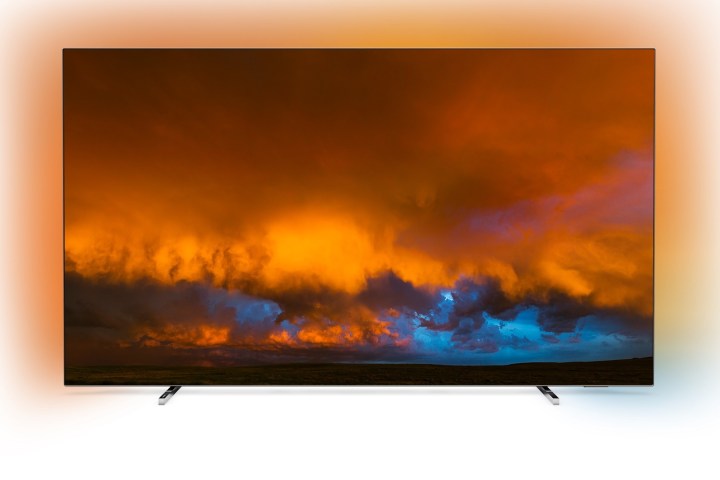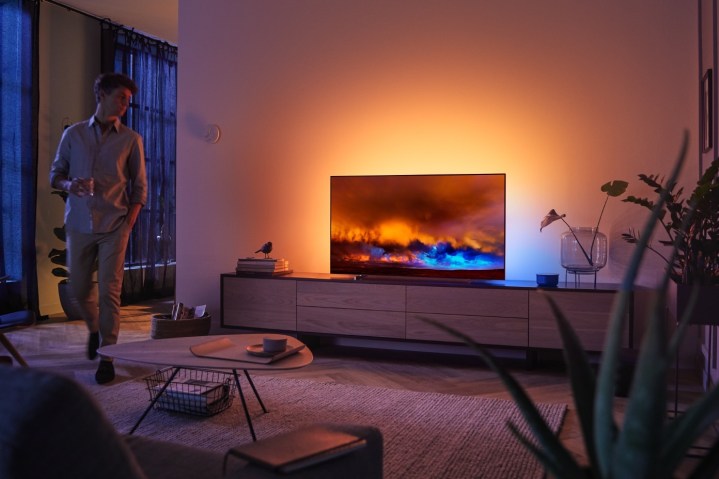This story is part of our continuing coverage of CES 2020, including tech and gadgets from the showroom floor.
For the most part, the U.S. is the land of milk and honey when it comes to the latest tech. It’s a huge market, which means tons of choice and some of the lowest prices of any country. But sometimes great products don’t hit these shores. Like Philips’ excellent OLED TVs, which we had the chance to check out at IFA 2019. However, if recent reports emerging from CES 2020 are accurate, that’s about to change: Funai, the company that licenses the Philips brand in the U.S., is going to bring the 804 Series OLED TV to this country in 2020.
Why does this matter? After all, we’ve already got great OLED TVs from LG and Sony. Well, first of all, more choice is always welcome. But secondly, the Philips 804 Series has a few features that help it stand apart from LG and Sony, even though the OLED panels for all three manufacturers come from the same factory run by LG Display.

Chief among those features is Philips’ Ambilight technology. Using a string of LEDs mounted along three sides of the back of the 804 Series, Ambilight can bounce an infinite array of colors on the wall behind the TV. These colors can match the prevailing on-screen color, which has the effect of enlarging the image, or they can be set to a neutral 6500K white, giving you all the benefits of professional bias lighting. If you’re a fan of the Philips Hue smart lighting system, it’s even cooler: The Ambilight on the TV can sync to those lighting products for an effect that takes over your whole room.
Another cool component is the 804’s support for every major HDR format. HDR10, HDR10+, and Dolby Vision are all on board, which would make the 804 the only OLED TV in the U.S. that has them all. It comes in handy when you’re streaming titles from Amazon Prime Video in HDR10+. Speaking of supported formats, the 804 is also good to go when it comes to Dolby Atmos.
Though its Android TV (

The 804 Series OLED TV also comes with a pretty spectacular remote. It might not be everyone’s cup of tea, but the double-sided design means you can ditch the D-pad dance when entering text and use an actual QWERTY keyboard instead.
We don’t yet have a release date or pricing on the Philips 804 Series OLED TV, which will be available in both 55- and 65-inch sizes, but we’re very hopeful they’ll challenge both LG and Sony on price. Funai’s press release supports this hope: “With these Philips TVs, Funai is really taking OLED image technology, design flair, and connectivity integration to the next level — and all at an affordable new price point,” said Peter Swinkels, director of product planning for Funai.
Follow our live blog for more CES news and announcements.
Editors' Recommendations
- Samsung prices its entry-level S85D OLED TV starting at $1,700
- Sony debuts the Bravia 9, its brightest 4K TV ever, alongside new 2024 models
- Vizio’s first 86-inch 4K TV is coming soon, for $999
- TCL’s giant 115-inch QM89 is the world’s largest 4K mini-LED TV
- Hisense teases 110-inch, 10,000-nit TV ahead of CES 2024



